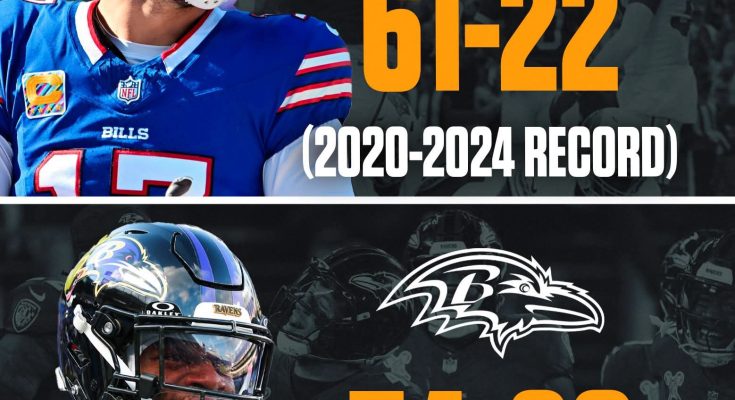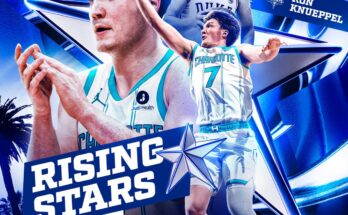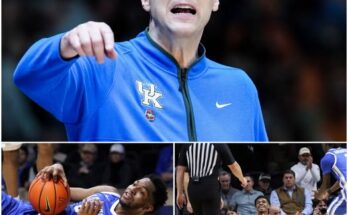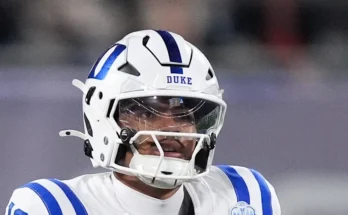Despite MVP QBs and Dominant Rosters, the 2020–2024 Ravens and Bills Delivered the Greatest Five-Year Runs Without Super Bowl Trips
The National Football League is a brutal arena where legends are made—or left behind. Over five grueling seasons from 2020 through 2024, two franchises etched themselves into a frustrating corner of NFL history: the Baltimore Ravens and the Buffalo Bills. Despite regular season dominance, MVP-caliber quarterback play, and rosters brimming with All-Pros, neither team managed to even reach a Super Bowl. They were perennial contenders, often among the odds-on favorites, but the path to the biggest stage proved to be a cruel and unyielding roadblock. These two teams—so rich in talent and promise—will go down as the best teams in modern NFL history to never make a Super Bowl appearance across a five-year stretch.
The Ravens and the Bills mirrored each other in many ways throughout this period. Both were powered by electrifying quarterbacks—Lamar Jackson in Baltimore and Josh Allen in Buffalo—who redefined the position in their own image. Jackson dazzled with his unparalleled ability to turn broken plays into touchdowns, blending speed, vision, and accuracy in a way that left defenses gassed and coordinators perplexed. Meanwhile, Allen combined a rocket arm with bruising physicality, delivering highlight-reel throws and runs that made the Bills a must-watch juggernaut every week.
From 2020 to 2024, both teams accumulated impressive win totals, routinely finishing among the top seeds in the AFC. The Ravens notched three seasons of 12 or more wins, while the Bills consistently hovered around the 11–13 win mark annually. Their regular-season success was not a fluke. These were well-constructed, well-coached squads, capable of dominating on both sides of the ball. Baltimore’s defense, often ranked in the top five in points and yards allowed, maintained its reputation as one of the league’s toughest units. Buffalo’s defense—though it dealt with more injuries—was opportunistic and explosive, with strong linebacker play and elite safety tandems for much of that stretch.
Offensively, each team innovated in its own way. Baltimore’s run-heavy, option-based attack under offensive coordinator Greg Roman (and later Todd Monken) turned Jackson into one of the most statistically efficient QBs in history, while players like Mark Andrews, J.K. Dobbins, and later Zay Flowers provided skill-position spark. Buffalo, led by offensive mastermind Brian Daboll (through 2021) and later Ken Dorsey, operated a spread-style attack that maximized Allen’s deep ball and versatility, featuring the likes of Stefon Diggs, Gabe Davis, Dawson Knox, and eventually James Cook.
But despite all of this brilliance, neither team could break through the AFC playoff gauntlet. A combination of bad breaks, heartbreaking losses, and brutally-timed injuries defined their postseason narratives. The Ravens saw promising playoff runs derailed by narrow defeats, including the 2020 Divisional Round loss to the Bills, where their offense sputtered in frigid conditions. Later runs saw Lamar Jackson either injured or unable to fully carry a team when the margins grew razor-thin against playoff-caliber opponents like the Chiefs and Bengals.
For the Bills, the trauma is even more vivid. Perhaps no loss symbolizes their era more than the infamous “13 Seconds” game against the Kansas City Chiefs in the 2021 Divisional Round. Josh Allen had just delivered what looked like a game-winning touchdown pass to Gabriel Davis—his fourth of the night—only for the defense to allow Patrick Mahomes to march downfield in under 13 seconds to force overtime. The Bills never touched the ball again, and the heartbreak that followed became a recurring theme. They lost again to the Bengals in the 2022 Divisional Round in a snowy, sluggish affair that saw Buffalo look completely overwhelmed. Injuries, inconsistent line play, and sometimes questionable coaching decisions all played their part.
The larger irony is that both the Ravens and Bills frequently felt like championship teams. Every August, NFL analysts and fans pegged them as Super Bowl favorites or close contenders. Their rosters were consistently deep: from strong offensive lines to loaded defensive units, it always felt like “this is the year.” But year after year, someone else rose to the occasion. Most often, that someone was Patrick Mahomes and the Kansas City Chiefs, whose dynasty-era dominance closed the Super Bowl window for more than a few deserving teams.
In Lamar Jackson’s case, despite winning two MVPs (2020 and 2023), critics continued to question whether his style could translate to the postseason. He silenced many doubters in the 2023 season by leading the Ravens to a 13-4 record and earning home-field advantage in the playoffs. Yet once again, they stumbled in the AFC Championship against—you guessed it—the Chiefs. It was a winnable game, one where a few uncharacteristic turnovers and stalled red-zone trips turned the tide. Jackson played well, but the offense couldn’t find its rhythm when it mattered most.
Josh Allen, on the other hand, seemed to be climbing toward that elite quarterback tier. In several of those seasons, he ranked top three in total touchdowns and total yards. His chemistry with Stefon Diggs was among the best QB-WR duos in football, and his cannon arm became legendary for jaw-dropping throws under pressure. But Allen’s hero-ball tendencies also got the best of him in key playoff moments. Costly turnovers—whether forced fumbles or ill-advised interceptions—marred some otherwise brilliant performances. It wasn’t a question of talent but of timing, discipline, and sometimes just plain luck.
It’s also worth noting how both franchises tried everything to get over the hump. The Bills invested in their offensive line, changed coordinators, shuffled their defensive secondary, and made splashy signings and trades. The Ravens drafted exceptionally well, added pass-rushers, revamped their receiving corps, and committed to long-term extensions for their core players. Neither team was complacent. These were front offices that understood the urgency and capitalized on their Super Bowl windows. And still—no trip to the final game.
By 2024, fatigue was setting in. The narratives had hardened. Both fan bases began to feel cursed. Media coverage shifted from “Super Bowl hopefuls” to “teams that can’t finish.” That narrative was undeserved, but it stuck. The Ravens’ 2024 season ended in another close playoff loss, and while Lamar Jackson remained elite, murmurs about his long-term playoff viability grew louder. The Bills exited in similarly frustrating fashion, with questions about whether they had already peaked beginning to surface.
So how will history remember the 2020–2024 Ravens and Bills? Not as failures, but as bittersweet powerhouses—teams that did almost everything right and still came up short. Their absence from a Super Bowl doesn’t erase the awe they inspired, the games they won, or the records they shattered. But it does cement them as examples of how cruelly thin the margin is between greatness and glory in the NFL.
The league has seen great teams fall short before—Dan Marino’s Dolphins, the 2000s Chargers, the early 2010s Packers post-2010—but rarely have two franchises simultaneously produced MVP quarterbacks, elite defenses, and multiple 12+ win seasons without a single Super Bowl berth between them. In some ways, their simultaneous rise and shared disappointment make the comparison more tragic—and more compelling.
NFL fans will debate these two teams for years. Were they unlucky? Poorly coached in the postseason? Victims of a Mahomes-dominated era? Or just missing that final intangible element that turns contenders into champions? The answer is likely a combination of all these factors.
But one thing is clear: the 2020–2024 Baltimore Ravens and Buffalo Bills were among the greatest teams of their era. Just not the greatest—because greatness in the NFL is ultimately measured in rings, and both teams leave this five-year stretch with none.
Still, their legacy lingers. In the highlight reels, the box scores, and the unforgettable Sundays they gave their cities, they will be remembered. And maybe, just maybe, they’re not done yet.



